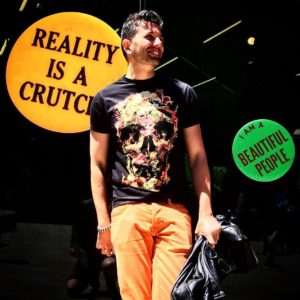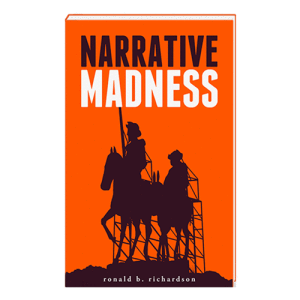 It might seem that I am trying to demonstrate the unreality of reality. Many others have done so, including Taoists, Hindus and Buddhists. Jews, Christians and Muslims, following Plato’s lead, think God’s ideal realm is realer than this world. Religious people are not the only ones to call reality an illusion. Ludwig Wittgenstein said, “The limits of my language mean the limits of my world,” and Jacques Derrida suggested, “There is nothing outside the text.”
It might seem that I am trying to demonstrate the unreality of reality. Many others have done so, including Taoists, Hindus and Buddhists. Jews, Christians and Muslims, following Plato’s lead, think God’s ideal realm is realer than this world. Religious people are not the only ones to call reality an illusion. Ludwig Wittgenstein said, “The limits of my language mean the limits of my world,” and Jacques Derrida suggested, “There is nothing outside the text.”
Instead, my purpose is to show that the distinction between fiction and reality is artificial, created by language. Fiction and reality both exist as concepts within the same linguistic structure; symbols and stories are essential parts of our reality system. Everything we talk and write about is fiction, yet fiction has material existence, therefore it is real. Separating fiction from reality only drives us, like Don Quixote, to narrative madness.
Continue reading “Purpose: To Rehabilitate Reality through Metafiction”

 In my book
In my book  It might seem that I am trying to demonstrate the unreality of reality. Many others have done so, including Taoists, Hindus and Buddhists. Jews, Christians and Muslims, following Plato’s lead, think God’s ideal realm is realer than this world. Religious people are not the only ones to call reality an illusion. Ludwig Wittgenstein said, “The limits of my language mean the limits of my world,” and Jacques Derrida suggested, “There is nothing outside the text.”
It might seem that I am trying to demonstrate the unreality of reality. Many others have done so, including Taoists, Hindus and Buddhists. Jews, Christians and Muslims, following Plato’s lead, think God’s ideal realm is realer than this world. Religious people are not the only ones to call reality an illusion. Ludwig Wittgenstein said, “The limits of my language mean the limits of my world,” and Jacques Derrida suggested, “There is nothing outside the text.”